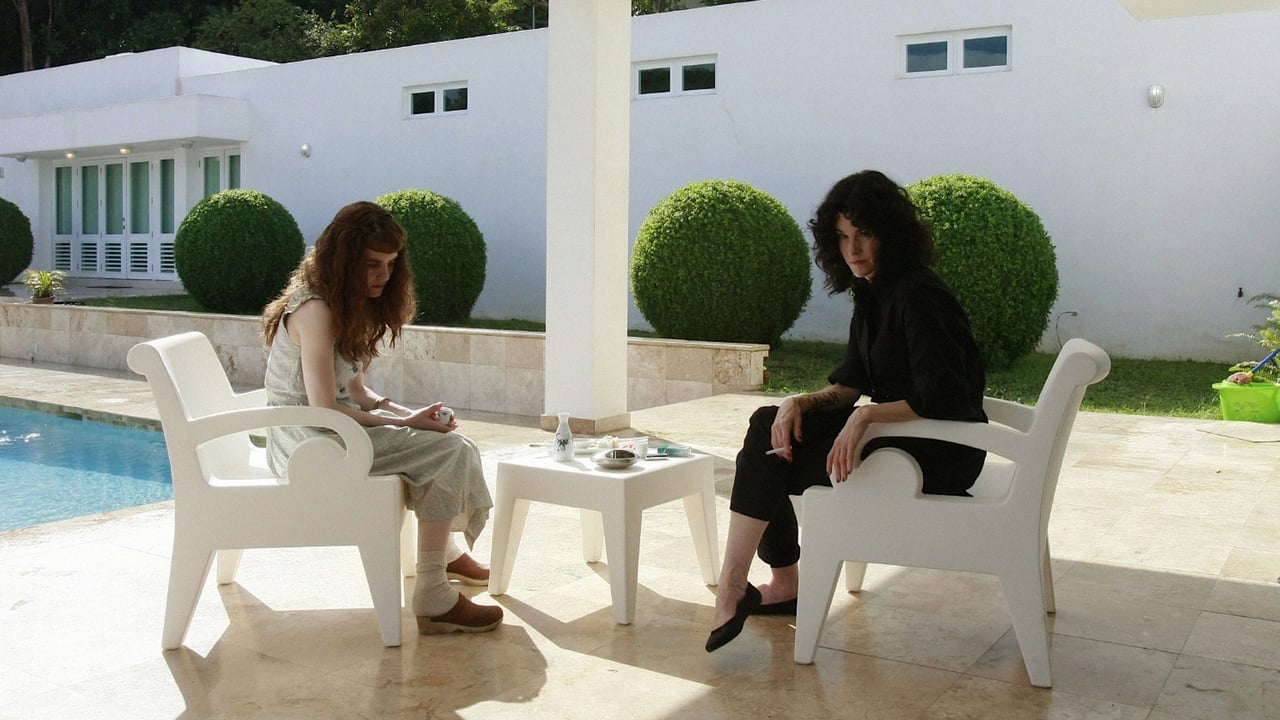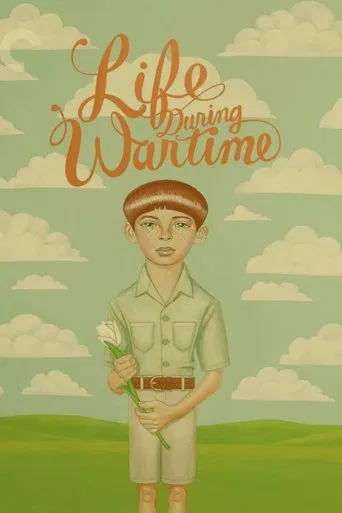

Todd Solondz comes back one more time resuming stories about joy and sorrows, forgives, forgets and regrets, the same gears that leaded his previous works as Welcome To Dollhouse (1995), Happiness (1998) and Palindromes (2004), in one way or another.Here the story surrounds the life of a kid and the members of his family that are trying to discover the meanings of when and how could people achieve the joy or the happiness in their lives just forgiving or forgetting something harmful enough to be forgotten or forgiven.As always, Solondz plays with dark humor all the time just to relieve the weight of complex dramatic themes, giving the right balance needed to make real hard life discussions into something as ordinary as a breakfast.The characters are well constructed and it's interesting the way they lead with the relationships between them. All the time 2 characters are discussing in a table or with something between them, using it like a place where they can put and throw - or sometimes hide - all their problems and differences but at the same time blocking and impeding the reaching of each other, like a battlefield.Words are like guns and watching those characters hurting each other and using each other words like bullets is shocking because that's what we are, and we are responsible for that. Life During Wartime deals with complex themes, sometimes is a difficult movie for the raw, bitter and impacting dialogs, but you can't run away from them forever.As another one said: "Todd Solondz is unique and so are his films. He forces you to look through an angle that we systematically ignore".Great work once again.
... View MoreA sort of sequel to Happiness(with most of the characters returning, albeit all recast, aged and... well, not matured), this picks up years after, and we see how Trish deals with the events of it, and meet Joy again(and she's taken a turn for the... stranger, now haunted by Andy, and otherwise not offering that much to this... don't get me started on Helen, who in a single scene merely reiterates her schtick from the original). Some of the scenes feel like they don't really need to be there, and sans credits, this is only 89 minutes long. With that said, this is still a nice piece by Solondz, and a decent "fix" for anyone else who enjoy his work. The philosophy this time deals with forgiveness, what is natural, why do some people do bad things(is it genetic), and comments on excessive fear(xeno- and homophobia) as being irrational. Humorous material focuses on the idea of "normal", nothing in this is ever idyllic in spite of the appearance of such, perversity, terrorism, and life in suburbia is yet again seen as being terrible. It's again black comedy, with snarky, harsh lines. The dialog is sharp and the acting is good. This comes off as very "real", the camera lets it all hang out. Shots sometimes last a while, and tension and awkwardness(intentional) arises from this(this is content more than presentation). There is a lot of overt sexuality, a little disturbing content and strong language as well as brief nudity in this. I recommend this to fans of Todd and indies in general. 7/10
... View MoreTodd Solondz might be the most polarizing comedy director no one's ever heard of. The reputation of his films proceed them; a shroud of controversy seems to surround his work, which frequently depicts explicit sexuality, including pedophilia and rape, not to mention murder, exploitation, and ridicule channeled through a pitch-black misanthropic irony. And yet you might as well be speaking another language bringing up his name and filmography with a mainstream crowd. Even in the circles in which he's known, his sense of humor is a decidedly acquired taste. So specific, in fact, that his latest film, "Life During Wartime," may come as a shock to his fans. And not the sort of shock they're used to.A direct follow up to probably his most well known film, 1998's "Happiness," "Life During Wartime" provides a notably more contemplative take on the lives of Solondz's characters, who have been deliberately and entirely recast for this sequel. Yes, it has its moments of biting humor, dark caricatures, and discomfort, but this time around, he approaches them with a subtler, more refined eye. "Happiness" is a busy, sprawling movie—"Wartime" is a brief string of conversations reactive to the action of that film.It has the tendency to come off initially disappointing, perhaps because it is his least funny film. But if it is his least funny film, then it is intentionally so; for a director who has tirelessly redefined the term 'mature content,' Solondz finally feels as though he himself is maturing. The result may be less fun, but it's probably more valuable.And his characters breathe that maturation. In "Happiness," Bill Maplewood (then Dylan Baker, now Ciarán Hinds) is a struggling pedophile; he is defined and condemned by the things he does. His reintroduction in "Life During Wartime" is upon release from prison, where his sole motive is to track down his son and conduct an amateur psychoanalysis on the damage his behavior caused. Hinds is solemn and introverted in the role; Baker was oily, narcissistic, and well—Childish, if you'll forgive the phrase.Maplewood's recurring dream is a perfect visual metaphor for not only the changes he has undergone between films, but the tones of the films themselves. In "Happiness," he dreams of an unspoiled park, complete with picnickers and strolling couples enjoying absolute tranquility—Before he loads an assault rifle and lays them all to waste. In "Wartime," Maplewood revisits the park, where a single elusive individual, scrubbed and out of focus, turns to him with a rose in hand.What I find most interesting, however, is not the way Solondz reconsiders these characters, but how he reconsiders the idea of the sequel. He's dabbled before in casting multiple performers in a single role—His last film, "Palindromes," had eight actresses portraying its protagonist. But with "Life During Wartime" he commits entirely, while at the same time creating a film purposefully asimilar to the existing work.It may not be as exciting or as groundbreaking a film as "Happiness" is and was, but it's more interesting for its reservations. The converse, 'Hollywood' approach would have been to outdo the original, to push the envelope even further, and the result would be infinitely less genuine. Instead, Solondz throws a curveball: treating his characters with unprecedented compassion (though only by comparison to his other films), and challenging our preconceived notions of both what a sequel is, and what a Todd Solondz film is."Life During Wartime" won't win over many detractors (they probably haven't heard of it anyway), and it even runs the risk of aliening fans expecting more vitriol—Leave it to Solondz to polarize audiences even when his shroud of controversy dissipates. The man has an absolutely uncompromising vision, and he's still one of the greatest comedy directors working today, whether you've heard of him or not.
... View MoreI would really like to see Todd Solondz produce something on the level of WELCOME TO THE DOLLHOUSE or HAPPINESS again but I'm afraid that I'll just have to settle for watching those earlier works. To be fair, I don't know what he could have done with the characters from HAPPINESS that would have worked better. I revisited HAPPINESS before seeing LIFE DURING WARTIME to refresh my memory. That film crackles throughout with uneasiness. When we laugh, it's to release tension. It's not the cast's fault that this film lacks the same punch. While unrated in the US, my guess is that this would have received a PG-13 or an R for a few exposed breasts. HAPPINESS would have been NC-17 for sure. HAPPINESS was about getting whatever happiness one can no matter the cost to others. This is a film about forgiving and forgetting and moving on. I can certainly forgive Todd Solondz for what he tried to achieve here even as the film fades from memory.
... View More